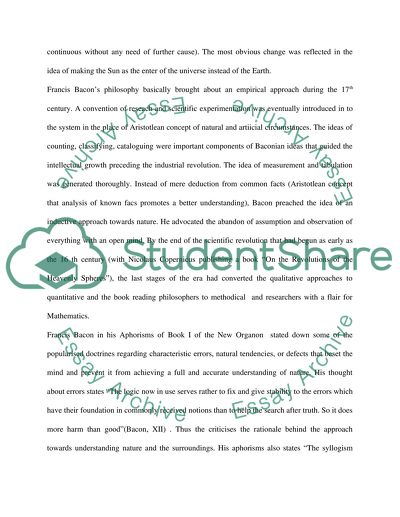Cite this document
(“Scientific revolution and the influence of Bacons doctrines Essay”, n.d.)
Scientific revolution and the influence of Bacons doctrines Essay. Retrieved from https://studentshare.org/history/1541783-scientific-revolution-and-the-influence-of-bacons-doctrines
Scientific revolution and the influence of Bacons doctrines Essay. Retrieved from https://studentshare.org/history/1541783-scientific-revolution-and-the-influence-of-bacons-doctrines
(Scientific Revolution and the Influence of Bacons Doctrines Essay)
Scientific Revolution and the Influence of Bacons Doctrines Essay. https://studentshare.org/history/1541783-scientific-revolution-and-the-influence-of-bacons-doctrines.
Scientific Revolution and the Influence of Bacons Doctrines Essay. https://studentshare.org/history/1541783-scientific-revolution-and-the-influence-of-bacons-doctrines.
“Scientific Revolution and the Influence of Bacons Doctrines Essay”, n.d. https://studentshare.org/history/1541783-scientific-revolution-and-the-influence-of-bacons-doctrines.


